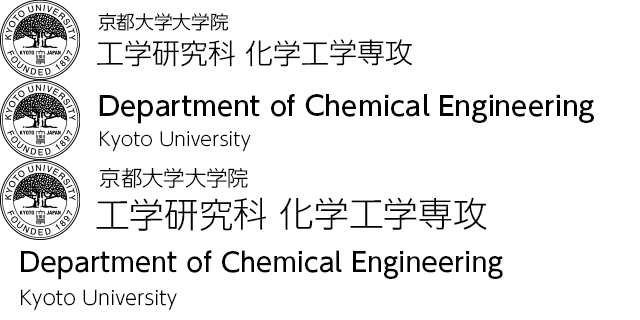Educational Policy
In order to bear fruit for production activities and social well-being through the rapid application of fundamental scientific knowledge and environmental consideration, chemical engineering is a fundamental field of engineering that responds to a wide variety of needs and demands, such as the development of advanced, complex functional materials for the 21st century, and various kinds of energy-saving and environment-friendly production equipment and technology.
In our master's program, we provide students with lectures to give them a detailed outline of the fundamentals of chemical engineering, as well as with practical training to master the essence of the discipline, through direct engagement in world-leading research. In the course of education and research, we guide students in cultivating the qualities needed to make them first-class engineers—such as skills in communication, cooperation, presentation and proposal formulation, as well as a strong base of ethics—through discussion and debate with academic staff and other students; joint research with academic staff, external engineers, and other students, and presenting at scientific conferences. Furthermore, we help students master the requirements of research supervision through work experience in education—for example, as a TA (teaching assistant).
By cultivating first-class engineers with these achievements, we will make a significant contribution to the advancement of society.
